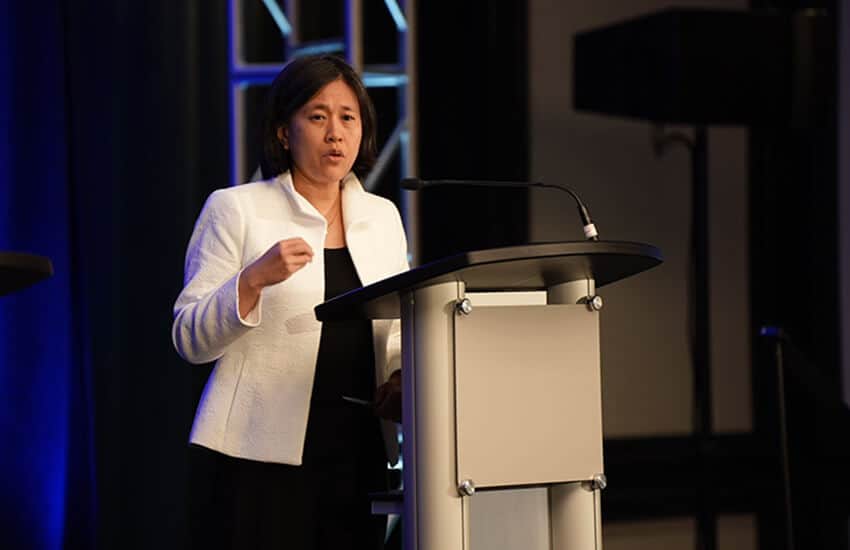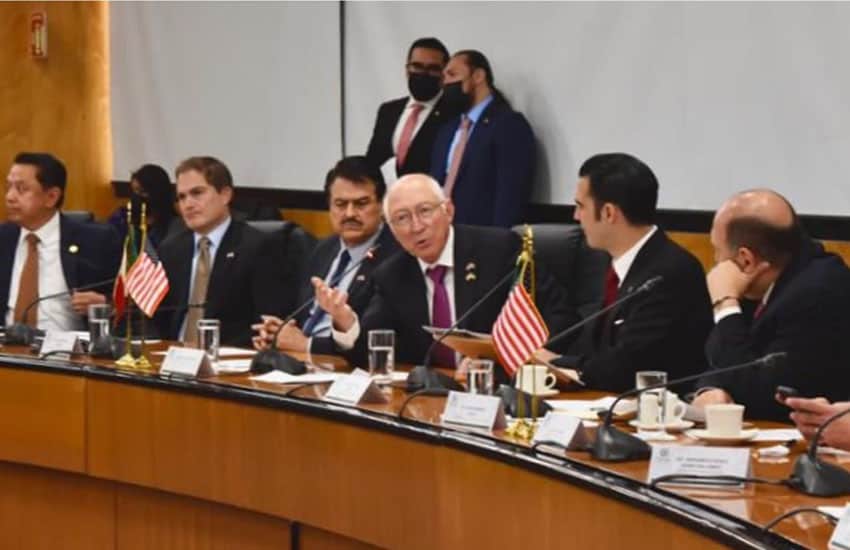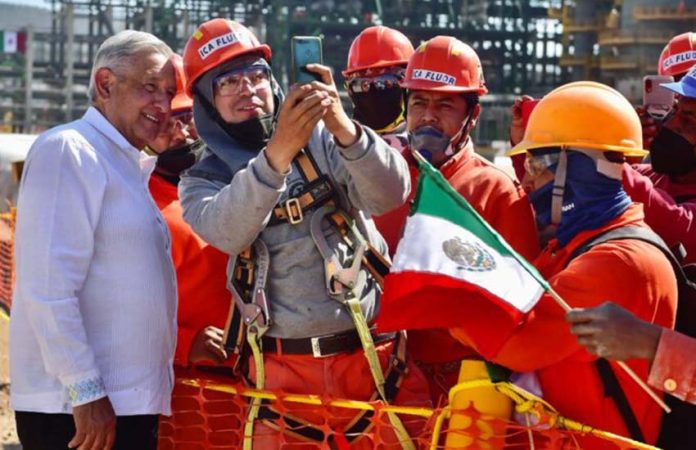United States Trade Representative Katherine Tai has joined a long list of U.S. officials who have raised concerns about Mexico’s energy policies.
Tai on Friday said that her office had “serious concerns with the deteriorating trajectory of Mexico’s energy policies,” according to a readout of a virtual roundtable discussion she convened.
Two United States lawmakers as well as representatives of environmental NGOs, business associations and U.S. companies were convened by Tai to discuss what her office called “the troubling developments” in Mexico’s energy sector and their implications for the U.S.-Mexico-Canada Agreement (USMCA).
Tai raised concerns about “a series of ongoing actions the Mexican government has taken to increase state control over, and limit competition in, the energy sector.”
She said the USTR is “actively assessing these developments,” among which are the government’s closure of privately owned fuel storage terminals and delays in issuing the energy sector permits private companies require to operate without encumbrance in Mexico.

The government is also pursuing an electricity reform that would guarantee 54% of the market to the state-owned Federal Electricity Commission (CFE). A vote on the constitutional bill in the lower house of Congress is expected in April.
According to the USTR readout, the roundtable discussion participants told Tai that developments including “chronic” permit delays and abrupt closures of numerous fuel terminals near the U.S. border are weakening investor confidence in Mexico.
They are being made at the expense of the environment, restrict U.S. fuel exports, and damage efforts to enhance North American competitiveness.
Environmental NGOs said the Mexican government’s energy sector policies “cripple the expansion of renewable energy development in Mexico and hinder efforts to achieve environment and climate goals for communities throughout North America.”
The readout said that Tai also noted that Mexico’s energy policies damage the environment, U.S. business and investor interests in multiple sectors, and hamper joint efforts to mitigate climate change.
United States Energy Secretary Jennifer Granholm, climate envoy John Kerry, Ambassador Ken Salazar, Texas Governor Greg Abbott and lawmakers with the Democratic and Republican parties are among the other U.S. officials who have raised concerns about Mexico’s energy sector policies and plans.

Salazar said last Thursday that Mexico must respect private energy companies’ existing contracts, even if the proposed electricity reform becomes law.
“My hope is that we have a [law] that will support the economic relationship between the United States and Mexico and respect the contracts … that [were signed] under the laws that existed,” he told members of the lower house of Congress’ Mexico-United States friendship group.
“… If there is no confidence there won’t be investment,” the ambassador added.
“We need investment [in Mexico], we need investment in the southeast, we need investment in Coahuila, in the places where there is so much solar energy,” Salzazar said.
He said that energy sector investment in a state such as Oaxaca – where there are already numerous wind farms – will spur economic development and create jobs, and thus act as a deterrent to migration.
“Why do people from Oaxaca go to the United States? It’s not because they want to go, because Oaxaca is a place of the heart. Who wants to leave their country and go to another place?” Salazar asked.

But the ambassador’s wish for all existing energy sector contracts to be respected won’t come true if President López Obrador gets his way.
The president, who has long argued that foreign and private companies were allowed to enter Mexico’s energy sector on terms that were unfair to the state, asserted Friday that the proposed electricity reform – which requires support from two-thirds of lawmakers to become law – will be passed without modifications, and “one-sided” contracts private companies signed before he took office will be canceled.
He also said that the federal government won’t pay any compensation to companies whose contracts are revoked. However, private companies will have the opportunity to negotiate new contracts under the terms of the electricity reform, López Obrador said.
He acknowledged that two-thirds congressional support is required in order for the constitutional bill to become law, but the ruling Morena party and its allies don’t have a supermajority in either house of Congress, meaning that at least some opposition lawmakers will have to back it to ensure it’s approved.
“In these [upcoming] days we will find out if the legislators represent the people … or … companies and vested interest groups,” Lóez Obrador said. “… Hopefully they’ll think about the people, about the nation, not just in partisan interests.”
López Obrador also said that foreign and private companies shouldn’t be concerned because there will be plenty of room for them to participate in the electricity market after the proposed reform becomes law.
“The bill establishes that they are guaranteed 46% of the market and the Federal [Electricity] Commission, which is a public company, would be tasked with 54% of generation. How much is 46%? It’s all [the power] that Argentina uses. That would be allocated to the private sector, to private companies, but we need to have the majority, the … [CFE] should have more presence,” he said.
The president rejected claims that the government’s proposed reform would violate the USMCA. “None of that, we’re combatting corruption,” he said.
Under the terms of the trade pact, individual companies as well as countries could seek arbitration or take other legal action if they believe Mexico is in violation of the USMCA, which superseded NAFTA when it took effect in 2020.
With reports from Reforma
